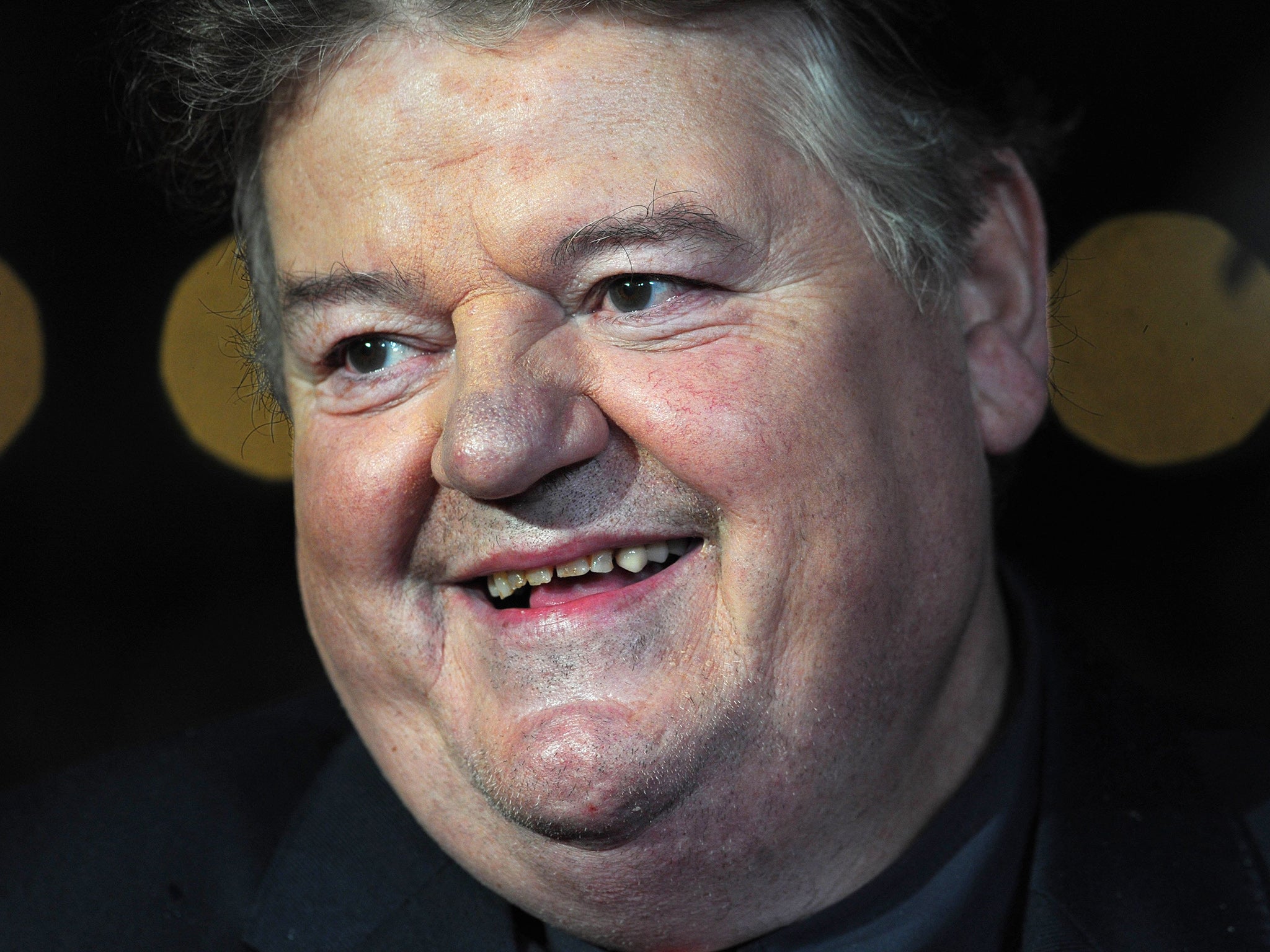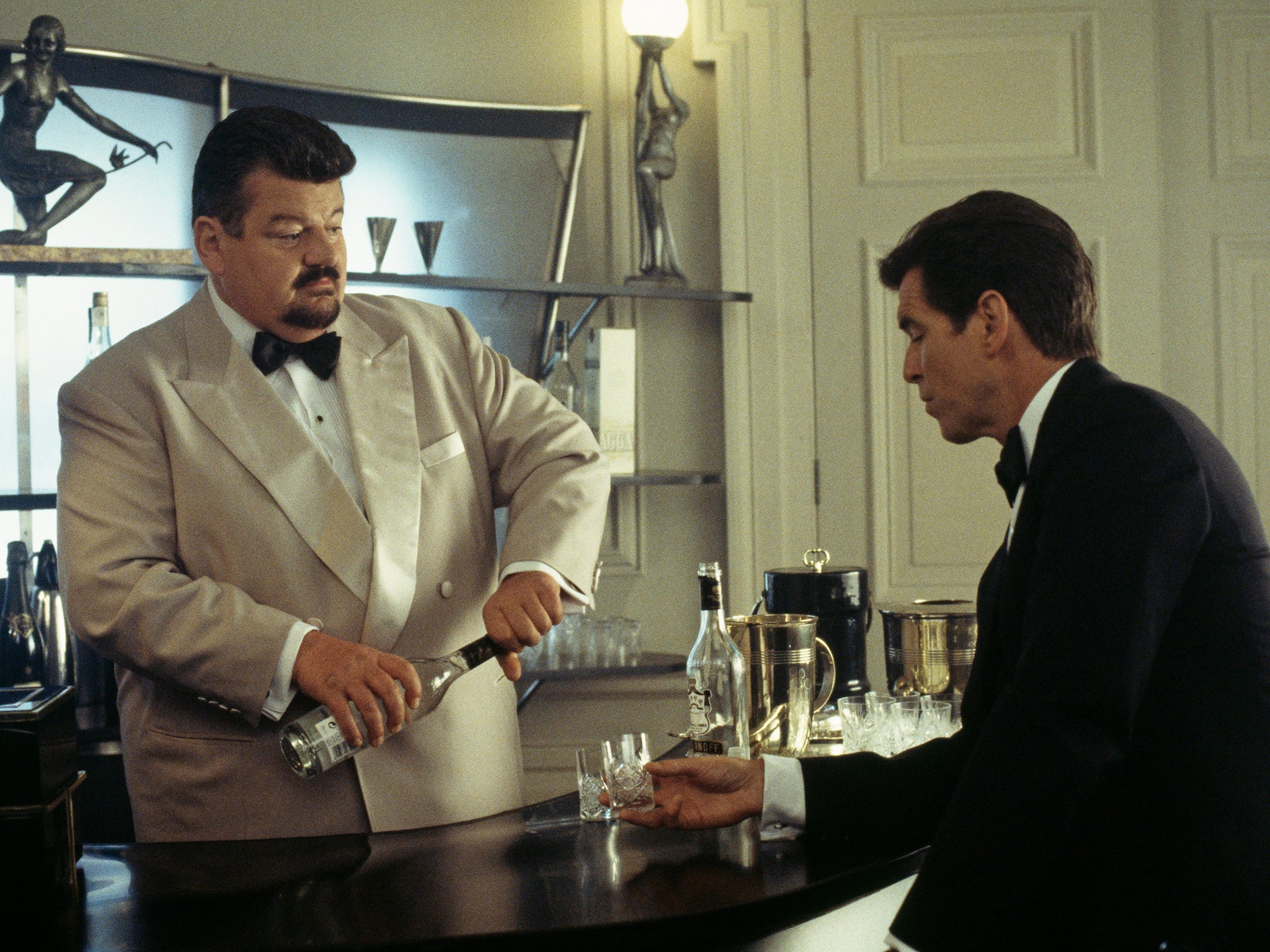Robbie Coltrane: Beloved Harry Potter star and esteemed actor
The actor’s role as Hagrid, the lovable quidditch gamekeeper, delighted generations of children

Your support helps us to tell the story
From reproductive rights to climate change to Big Tech, The Independent is on the ground when the story is developing. Whether it's investigating the financials of Elon Musk's pro-Trump PAC or producing our latest documentary, 'The A Word', which shines a light on the American women fighting for reproductive rights, we know how important it is to parse out the facts from the messaging.
At such a critical moment in US history, we need reporters on the ground. Your donation allows us to keep sending journalists to speak to both sides of the story.
The Independent is trusted by Americans across the entire political spectrum. And unlike many other quality news outlets, we choose not to lock Americans out of our reporting and analysis with paywalls. We believe quality journalism should be available to everyone, paid for by those who can afford it.
Your support makes all the difference.Robbie Coltrane, who has died aged 72, arrived on television in the 1980s as one of the new breed of “alternative” comedy performers. A decade later, he was making an even greater impact as the flawed criminal psychologist in Cracker. Then, moving into a new century, he was a favourite with younger audiences as Hagrid in the Harry Potter films.
He came to the fore in The Comic Strip Presents satirical films for television alongside other new faces such as Peter Richardson, Adrian Edmondson, Jennifer Saunders and Dawn French.
From the first story, Five Go Mad in Dorset, the spoofs gave Channel 4, newly launched in 1982, the subversive edge it sought in being different from the TV establishment.
Coltrane was very much part of that establishment, but at its gritty, hard-hitting centre, when he was cast as Dr Eddie Fitzgerald – “Fitz” – in Cracker (1993-96), former Brookside writer Jimmy McGovern’s creation featuring the psychologist who would have benefited from therapy himself.
His portrayal of the alcoholic, smoking, gambling, sarcastic and foul-mouthed, yet brilliant, “cracker” helping police to investigate murder and rape by getting into the minds of criminals won him a Bafta Best Actor award three years running. He made a return to the part for one final drama in 2006.
Robert Lindsay had been the original choice for the role in the ITV series. When he turned it down. McGovern and producer Gub Neal switched their attention to Coltrane, impressed by his performance as a therapist treating Lenny Henry’s drug-addicted dealer in Al Hunter Ashton’s BBC play Alive & Kicking (1991).
Coltrane admitted to sharing at least one of his screen alter ego’s self-destructive characteristics. “Booze is my undoing,” he once said. “I can drink a gallon of beer and not feel the least bit drunk.”
But being cast as Harry Potter’s half-giant wizard friend Professor Rubeus Hagrid, gamekeeper of Hogwarts School, made him reflect on his new-found status as a role model.
He said: “Kids come up to you and they go, ‘Would you like to sign my book?’ with those big doe eyes, and it's a serious responsibility.”
Coltrane was author JK Rowling’s first choice for the role, based on a Hell’s Angel she knew in the west of England.
He appeared in all eight Harry Potter films, from The Sorcerer’s Stone (2001) to The Deathly Hallows Part 2 (2011), accompanied by the oversized boarhound Fang and Hagrid’s other magical but sometimes dangerous creatures.
The actor also cemented himself a place in the history of another film institution, playing the KGB officer turned Russian mafia boss Valentin Zukovsky in the James Bond movies GoldenEye (1995) and The World Is Not Enough (1999), alongside Pierce Brosnan’s 007.

He was back in edgy territory for National Treasure (2016), writer Jack Thorne’s disturbing four-part Channel 4 drama, written in the wake of the Jimmy Savile scandal and Operation Yewtree’s prosecution of celebrities for sexual abuse.
There was widespread acclaim for his portrayal of Paul Finchley, a fictional popular comedian turned TV quiz show host accused of historical rape. The ambivalence in his performance and the complexity he brought to the characterisation, leaving viewers unsure of the personality’s innocence or guilt, won him a Broadcasting Press Guild Award as Best Actor.
Coltrane was born Anthony Robert McMillan in the Glasgow suburb of Rutherglen in 1950 to Jean (nee Howie), a teacher and pianist, and Ian Baxter McMillan, a GP who also worked as a police surgeon.
He was privately educated at Glenalmond College, Perthshire, and pursued his love of painting by attending Glasgow School of Art (1968-72), where he started acting.
While there, he consciously tried to lose his posh accent and rebelled against his conservative upbringing, supporting left-wing campaigns and battles to keep the local shipyards open.
Although he went on to study art at Moray House College of Education, Edinburgh, aiming to teach, Coltrane’s performances in pubs came to the attention of actors Bill Paterson and Alex Norton, who in 1974 pointed him in the direction of the city’s Traverse Theatre, where he started acting as Robbie Coltrane, taking his name from the jazz saxophonist John Coltrane.
He then gained experience touring universities with San Francisco-based San Quentin Drama Workshop (1974-5) before returning to the Traverse, where he made his mark in The Slab Boys (1978), set in a carpet factory, which became the first of John Byrne’s trilogy about working-class Scots, combining comedy with pathos. Coltrane played Jack Hogg, based on Byrne, who had risen from an apprentice mixing colours in the slab room to be a designer.
For the second in the trilogy, Cuttin’ a Rug (1979), Coltrane was back in the slab room as Spanky.
Although he never appeared in Still Life, the third play, he made his London stage debut (Hampstead Theatre, 1980) in Threads, a rewritten version of Cuttin’ a Rug.
He stayed on in London, where Ben Elton and others were assaulting the “old” comedy of Benny Hill and others by bringing a new breed of humour to audiences on stage and screen.
Despite a small straight acting role as a bartender in Barrie Keeffe’s TV play Waterloo Sunset (1979), Coltrane joined this new band of comedians to become a regular in groundbreaking sketch shows such as Alfresco (with Ben Elton, Stephen Fry and Hugh Laurie, 1983-4), the second series of A Kick Up the Eighties (with Rik Mayall and Tracey Ullman, 1984), Laugh??? I Nearly Paid My Licence Fee (with John Sessions, 1984) and 1984-7 episodes of The Lenny Henry Show.
He edged towards more dramatic roles as the star of Tutti Frutti, John Byrne’s 1987 Bafta-winning series about The Majestics, a fictional Scottish rock’n’roll band. Coltrane’s character, Danny McGlone, joins the washed-up group to replace his dead brother, with squabbles and personal disasters following, all portrayed with dark comedy.
The 1980s also saw Coltrane playing Dr Samuel Johnson in an episode of Blackadder the Third (1987) and starting to get recognised in films, playing Scipione Borghese, 16th-century Italian art collector, cardinal and closet gay, in Caravaggio (1986) and Bob Hoskins’s garage-owning friend Thomas in Mona Lisa (1986).
Nuns on the Run (with Coltrane playing a fleeing gangster in disguise, 1990) and the Comic Strip Presents spin-off The Pope Must Die (as the pontiff, 1991) were disappointing comedies, but Henry V (1989), Kenneth Branagh’s directorial debut with Coltrane as Falstaff, signalled his switch to drama.
The actor’s own celebrity status led him to present factual programmes such as Coltrane in a Cadillac (1993), driving from west to east across the US, and Coltrane’sPlanes and Automobiles (1997), exploring the development of engines in mechanical transport.
Later came film cameos as Mr Hyde, the mad scientist Dr Jekyll’s alter ego, in Van Helsing (2004), the informant Matsui in Ocean’s Twelve (2004) and the lawyer Jaggers in a 2012 adaptation of Great Expectations.
On television, Coltrane voiced the cunning mouse of the title in The Gruffalo and was back in crime-solving mode as DI Douglas Hain in Murderland (both 2009).
He remained a regular in The Comic Strip Presents, appearing in 19 of the 42 TV stories, finishing with Five Go to Rehab (2012), the penultimate adventure, which reunited the original five cast members.
Throughout his life, Coltrane battled weight problems, and osteoarthritis left him using a wheelchair during his last few years.
He was made an OBE in 2006.
In 1999, Coltrane married Rhona Gemmell and moved back to Scotland, settling outside the Stirlingshire village of Killearn. They split up four years later and divorced in 2010.
He is survived by their son, Spencer, and daughter, Alice, an actor who appeared alongside her father (playing Orson Welles) on TV in a 2020 Urban Myths story.
Robbie Coltrane, actor, born 30 March 1950, died 14 October 2022


Join our commenting forum
Join thought-provoking conversations, follow other Independent readers and see their replies
Comments